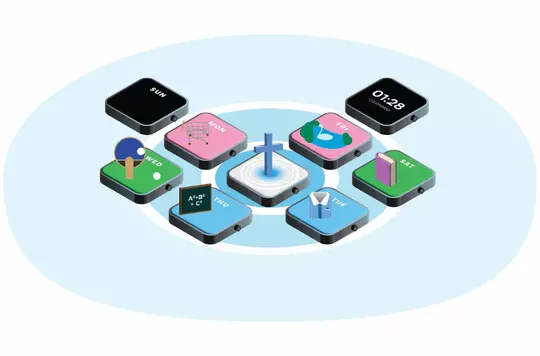5 October 2024
Seeking meaningful results
Ivan Radford

As artificial intelligence starts to shape Google results, Ivan Radford considers how and what we search for.
If you go down to Google today, you might get a big surprise. That’s because the internet giant is rolling out a new artificial intelligence update, which uses AI to change how you see search results.
The update, which launched in the USA earlier this year, generates an overview of information to answer your query. It currently applies to people in the UK signed in to a Google account, but will eventually apply to everyone searching on the website.
Google, when it launched back in 1998, was an unusual website: like other search engines, it was designed not to retain users but to signpost them elsewhere. Now, with more than 90 per cent of search engine traffic, it has reversed that dynamic: when people search for information, it provides a digested summary of other websites, so that people don’t have to go anywhere at all.
This small but fundamental shift in the way most people navigate the internet will transform what is effectively their window on to the world – and encourage them to rely on AI for discovering new information.
Artificial intelligence, when we see it in film and TV, is often depicted as some kind of entity, prompting debates around sentience. But AI, in reality, is about doing, not being. It’s increasingly ubiquitous because it presents a shortcut – a way for a capitalist society to improve things that companies perceive as problems, such as efficiency and productivity. It’s a tool that takes large volumes of data and generates approximations of what it’s been fed. It calculates an average of what already exists. It reflects back to us what’s already there.
Humans, of course, aren’t perfect. We’re full of prejudices and flawed understanding. So when AI generates a summary of the web to answer a question, there’s no guarantee the results are correct or that it isn’t just reflecting our own biases and injustices back at us.
As with all technology, there are advantages and opportunities, but the way we use AI – collectively and individually – will reflect who we are and who we want to be. As Christians, we know we want to reflect Christ. AI’s output might reflect an element of human experience of spirituality, but we cannot become more Christlike by looking only to ourselves.
The Bible tells us to ‘trust in the Lord with all your heart and lean not on your own understanding’ (Proverbs 3:5). ‘Only fools would trust what they alone think,’ cautions Proverbs 28:26 (Contemporary English Version).
We’re reminded in 1 Corinthians 3:18 that, ‘if you count yourself above average in intelligence ... you had better put this all aside and be a fool rather than let it hold you back from the true wisdom from above’ (The Living Bible).
As AI search results expand the potential for people to live and learn in echo chambers, discerning what is true will be more important than ever. Listening to other viewpoints and, above all, listening for God’s voice, will be key to our own development as disciples – if we are not compassionate and humble, how can we grow in our love for God and for others?
It is easy – and sometimes even beneficial – to take shortcuts in life, but the learning lies in the living of it. While society encourages us to focus on outcomes, becoming more like Jesus first requires being in relationship with God. We are called to be curious, not merely ‘do’ curiosity – to value asking, to love listening and to treasure seeking God’s Kingdom above all things.
Reflect and respond
- How do your search results impact how you view and experience the world?
- How much do you lean on your own understanding? How sincerely do you seek to grow in your faith?
- What are the people around you searching for? How can you reflect Jesus to them?
- Make Isaiah 26:3 a personal prayer – for the perfect peace of a steadfast mind that trusts in God.
Written by

Ivan Radford
Managing Editor, Salvationist











